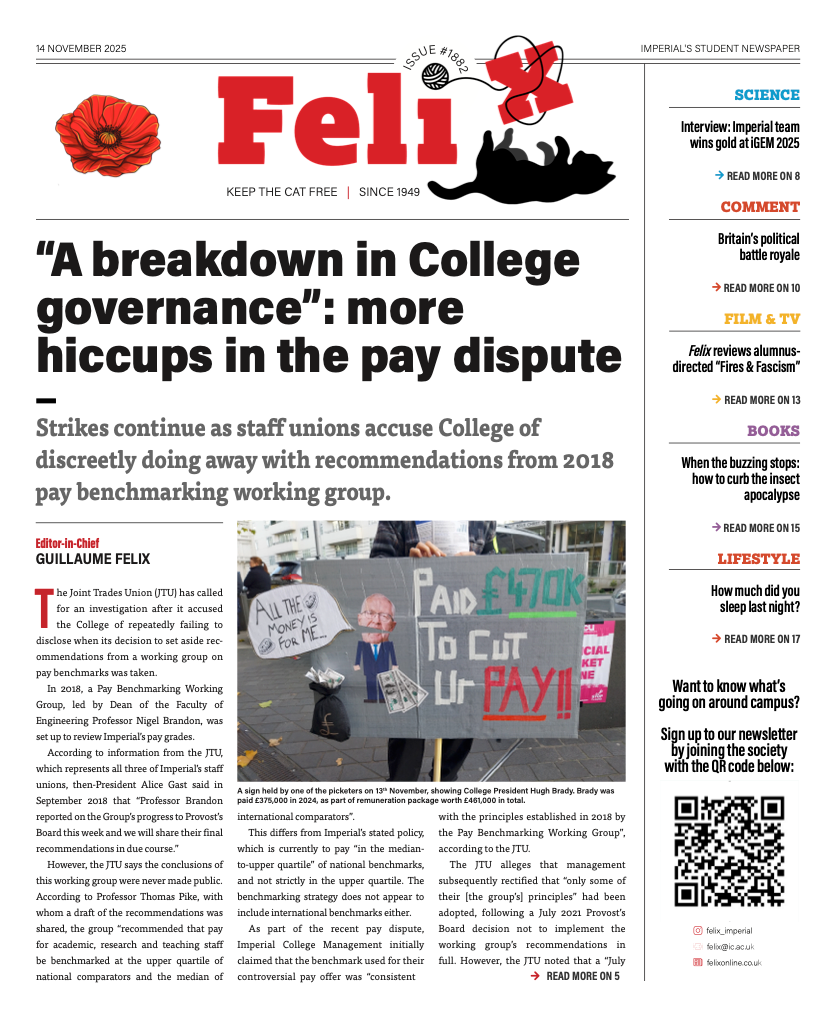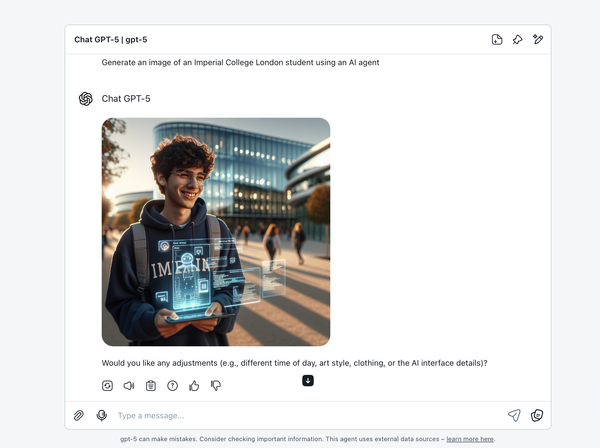“A breakdown in College governance”: more hiccups in the pay dispute
Strikes continue as staff unions accuse College of discreetly doing away with recommendations from 2018 pay benchmarking working group.
The Joint Trades Union (JTU) has called for an investigation after it accused the College of repeatedly failing to disclose when its decision to set aside recommendations from a working group on pay benchmarks was taken.
In 2018, a Pay Benchmarking Working Group, led by Dean of the Faculty of Engineering Professor Nigel Brandon, was set up to review Imperial’s pay grades.
According to information from the JTU, which represents all three of Imperial’s staff unions, then-President Alice Gast said in September 2018 that “Professor Brandon reported on the Group’s progress to Provost’s Board this week and we will share their final recommendations in due course.”
However, the JTU says the conclusions of this working group were never made public. According to Professor Thomas Pike, with whom a draft of the recommendations was shared, the group “recommended that pay for academic, research and teaching staff be benchmarked at the upper quartile of national comparators and the median of international comparators”.
This differs from Imperial’s stated policy, which is currently to pay “in the median-to-upper quartile” of national benchmarks, and not strictly in the upper quartile. The benchmarking strategy does not appear to include international benchmarks either.
As part of the recent pay dispute, Imperial College Management initially claimed that the benchmark used for their controversial pay offer was “consistent with the principles established in 2018 by the Pay Benchmarking Working Group”, according to the JTU.
The JTU alleges that management subsequently rectified that “only some of their [the group’s] principles” had been adopted, following a July 2021 Provost’s Board decision not to implement the working group’s recommendations in full. However, the JTU noted that a “July 2021 statement from the then Provost confirmed the use of international benchmarks for relevant roles, entirely in keeping with the 2018 principles.”
According to the JTU, the College later clarified the decision had actually been taken during an April 2021 Provost’s Board meeting, the summary of which was confidential. The JTU affirmed that this summary, which they say had previously been made public, did not explicitly rule that only some of the recommendations would be adopted.
“We don’t know if this is an official decision or if they’ve just lifted the carpet and swept [the recommendations] underneath,” a member of UCU, one of Imperial’s staff unions, told Felix. “Where are all the ‘College Values’?”
The JTU called for an independent investigation to determine “how and why” the working group recommendation were set aside. They said the management’s inability to provide a paper trail showed a “breakdown in College governance” and constituted a “serious failure of stewardship of staff views”.
An Imperial College London Spokesperson said: “We remain committed to ensuring that staff are appropriately recognised and rewarded for the vital role they play. In uncertain times it is important that we plan for the long-term future of our institution for the benefit of our students and staff.”
Thursday 13th November marked the fifth day of strikes for the JTU, which obtained a six-month mandate in September. “They’re not even acknowledging us,” a member of Unite, another union, told Felix at the picket line. “It’s not a good look for a world-class university.”
“I fully expect that if nothing comes through from management by way of flexibility, there will be another ballot,” another striker told Felix. “Last time, this included a marking boycott and not replacing [striking] lecturers.”
Separately, the Union Council called on Thursday for a vote on an extraordinary motion to support the strikes. The motion, for which voting will close on Wednesday 19th November, aims to “support University staff and workers participating in industrial action”.










